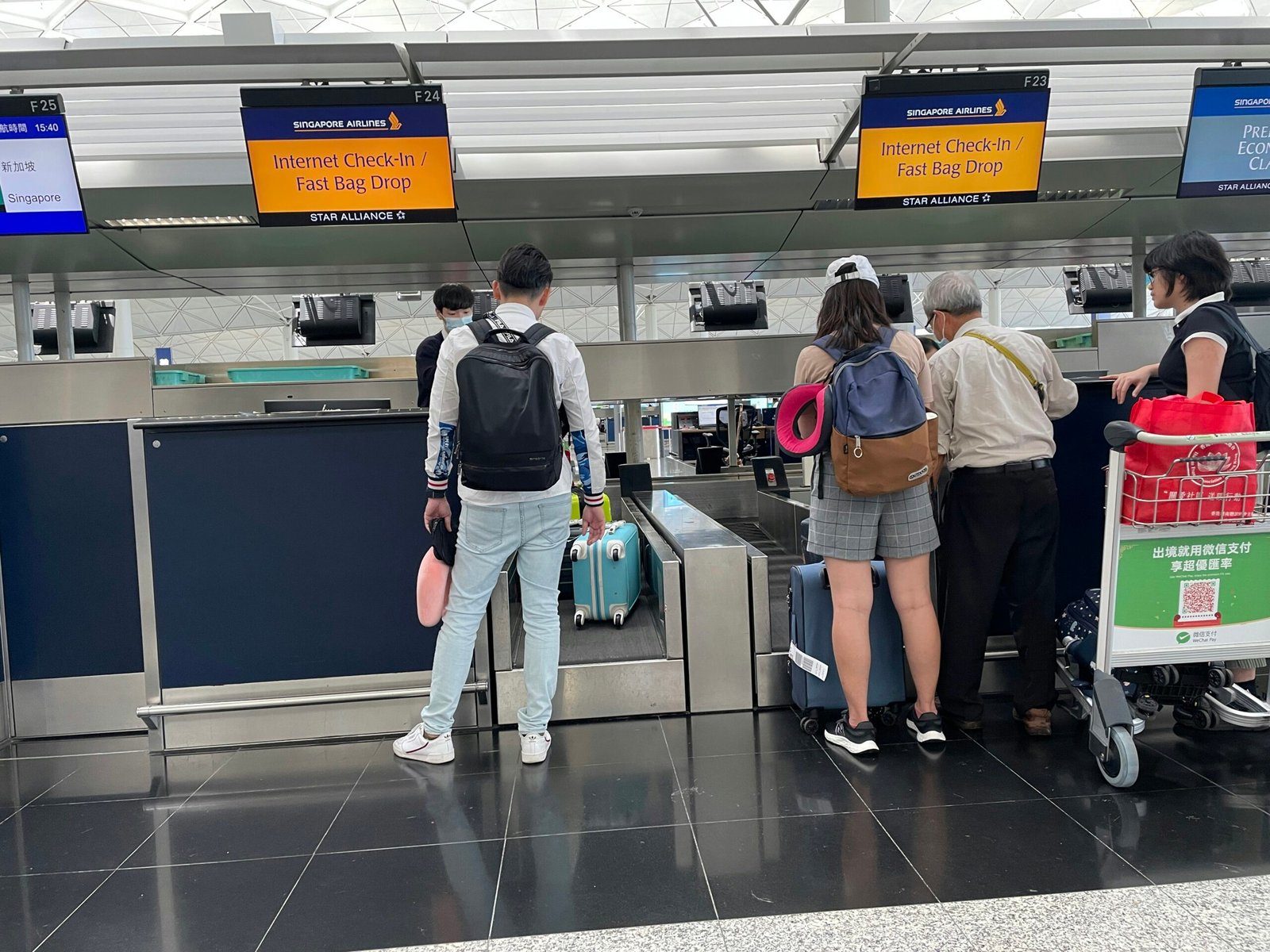Introduction to Traveler Preferences
The landscape of travel preferences is undergoing significant transformation as we approach 2025, influenced by a convergence of demographic shifts, technological advancements, and global events. This evolution prompts a deeper understanding of what travelers prioritize and seek out in their travel experiences. As seen in recent surveys, varied demographic groups have distinct preferences that reflect broader social changes and economic factors.
One notable trend is the increasing prominence of younger generations, particularly Millennials and Gen Z, in travel decision-making. These groups are characterized by their desire for authentic experiences and sustainability, often prioritizing eco-friendly options and meaningful interactions over conventional luxury. Technology plays a crucial role in shaping their preferences, with mobile applications and social media platforms driving choices around destinations, accommodations, and activities. The boom in online travel agencies and peer-to-peer services has further revolutionized how travelers plan and book their journeys.
In tandem with demographic shifts, global events, including the ongoing effects of the COVID-19 pandemic, have reshaped how individuals approach travel. Safety concerns, health regulations, and a newfound appreciation for local travel experiences have emerged as paramount drivers influencing destination selection. Furthermore, the rise of remote work has provided travelers with the flexibility to explore new locales, often leading to extended stays in less commercialized areas. As a result, understanding these traveler preferences becomes vital for the travel industry, enabling businesses to tailor their offerings to meet the evolving demands of a diverse consumer base.
This introduction sets the stage for an in-depth exploration of key findings from recent surveys, which shed light on traveler preferences across various demographic groups. Recognizing these insights will equip stakeholders in the travel industry to adapt their strategies, enhance customer satisfaction, and promote sustainable practices that resonate with contemporary travelers.
Key Trends in Travel Choices
As we look towards the travel landscape of 2025, it becomes evident that several key trends are influencing traveler choices. Foremost among these is the growing emphasis on sustainability. Recent surveys indicate that 75% of travelers are now prioritizing eco-friendly options when making their travel plans. This commitment to sustainability manifests in the increased preference for green accommodations, carbon offset programs, and experiences that promote environmental preservation. Consequently, travel service providers are adapting by offering more sustainable choices.
Another significant trend is the desire for personalized travel experiences. As consumers seek trips that cater to their specific interests and preferences, providers are leveraging data analytics to create tailored packages. Survey data shows that 68% of travelers are willing to pay extra for personalized services and experiences, further underscoring the importance of customization in enhancing customer satisfaction. This shift from one-size-fits-all travel packages to bespoke options marks a vital development in the travel sector.
Technology continues to play a transformative role in travel planning and booking. Enhanced mobile applications and AI-driven platforms are streamlining the process, allowing travelers to compare and book options quickly and efficiently. Surveys suggest that 80% of travelers favor using mobile solutions for itinerary management, highlighting the increasing integration of technology in the travel experience. This trend extends to contactless check-ins and virtual tours, which have gained traction in response to evolving expectations for convenience and safety.
Additionally, the rise of remote work culture is prompting a notable increase in remote work travel. A growing number of individuals are blending work and travel, seeking destinations that offer both productivity and leisure. Data reveals that 55% of remote workers plan to incorporate travel into their work routines by 2025, indicating a fundamental shift in how people approach both their professional and personal lives. These trends not only reflect changing traveler preferences but also shape the way the travel industry operates moving forward.
Demographic Insights: Who Are the Travelers?
Traveler demographics are essential in understanding the distinct preferences and behaviors that shape travel trends. The survey data reveals that age, income, and geographic location play crucial roles in determining how different groups approach travel. In 2025, four primary generations—Gen Z, Millennials, Gen X, and Baby Boomers—emerge as the main traveler segments.
Gen Z travelers, typically aged between 18 and 24, are characterized by their strong affinity for technology and social media. This demographic tends to seek experiences over material possessions, opting for immersive cultural adventures and nature-based activities. Their preference for budget-friendly travel options and accommodations, such as hostels or shared spaces, reflects their comparatively lower spending power, driven predominantly by limited income from part-time jobs or entry-level positions.
On the other hand, Millennials, aged 25 to 40, often have more disposable income and exhibit a penchant for sustainable travel practices. This generation typically prioritizes unique experiences that align with their values, such as eco-friendly lodgings and local cuisine. Their preference for mid-range accommodations, paired with a willingness to spend on experiences that foster personal growth, distinguishes their travel choices.
Gen X travelers, generally between 41 and 56 years old, are known for their focus on comfort and convenience. Often balancing careers and family obligations, this demographic tends to gravitate towards family-oriented destinations, luxurious stays, and all-inclusive resorts. Moreover, their higher income levels afford them a greater capacity to splurge on quality travel experiences.
Lastly, Baby Boomers, aged 57 and above, bring a wealth of travel experience, often favoring leisurely trips that integrate elements of relaxation and exploration. This demographic is likely to select destinations that allow for both comfort and rich cultural experiences, demonstrating a traditional approach yet adapting to new travel trends with a preference for guided tours and cruise vacations.
Future Predictions: What Lies Ahead for Travelers?
As we look toward the future of travel, insights gathered from recent surveys provide a roadmap for understanding emerging trends and evolving preferences among travelers. One significant prediction is the rise of alternative destinations that are less frequented but rich in culture and experiences. Travelers are expected to favor hidden gems over crowded tourist hotspots, embracing a more authentic and immersive travel experience. This shift is likely to inspire a new wave of tourism that promotes sustainability and supports local economies.
Additionally, technology is poised to play an increasingly central role in enhancing the travel experience. The adoption of artificial intelligence, augmented reality, and the Internet of Things is anticipated to streamline various aspects of travel. For instance, AI-driven platforms may provide personalized travel recommendations, while augmented reality applications can enrich real-time explorations of destinations. Mobile apps are expected to continue evolving, simplifying booking processes and real-time navigation, thereby elevating overall customer satisfaction.
Moreover, changes in travel regulations and safety measures remain critical considerations for the industry’s future. As travelers become more conscious of their safety, governments and businesses must adapt accordingly. This may involve implementing stricter health protocols and enhancing transparency around safety regulations, thus assuring travelers that their well-being is prioritized. Furthermore, the growing emphasis on sustainable travel is likely to push international bodies to establish regulations that encourage environmentally responsible tourism practices.
In conclusion, the future landscape of travel in 2025 will be shaped by evolving traveler preferences that emphasize unique experiences, technological integration, and heightened safety. As the travel industry navigates these changes, it remains essential that stakeholders adapt and innovate to meet the expectations of tomorrow’s travelers.








